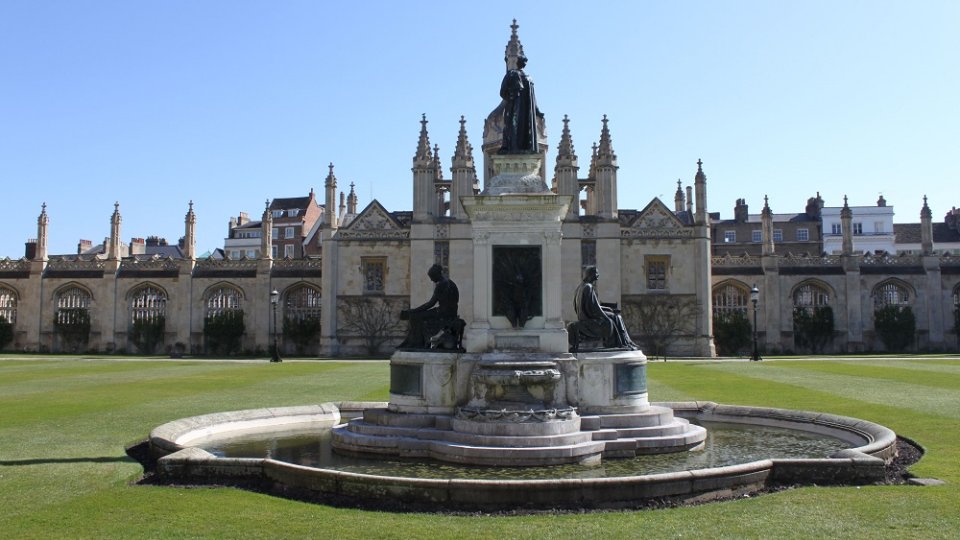Rupert Brooke was born on 3 August 1887, in Rugby, and matriculated at King's in 1906 as a Classics scholar, though he was later to concentrate on English. In 1909, having completed the first part of the Classical Tripos, he moved to Grantchester where he would become the centre of a group known as the 'neo-pagans' and began to write the poetry for which he would become famous, including ‘The Old Vicarage, Grantchester’ and the ‘Soldier’. His dissertation ‘John Webster and the Elizabethan drama’ gained him his Fellowship at King’s in 1913.
Personal problems prompted Brooke to take a long holiday, despite his recent election to a Fellowship, and he spent a year travelling in America, Canada and the Pacific, along the way writing a series of articles for the Westminster Gazette. He returned in June 1914 and soon received a commission as a Sub-Lieutenant in the Hood Battalion of the Royal Naval Division. Thereafter he served at Antwerp, trained for a winter at Blandford Camp and then joined the Mediterranean Expeditionary Force in February of 1915. While sailing for Gallipoli, he suffered from sunstroke and blood poisoning. He died aboard a French hospital ship on the following 23 April 1915 and was buried on the Greek island of Skyros.
Rupert's younger brother, Alfred, or ‘Podge’ to his family, was born in 1891 and also studied at King's. Alfred served as a lieutenant in the Post Office Rifles during WWI and died in France on 14 June 1915.
The Brooke Fund
Established in 1930 by the will of Mary Brooke, the mother of Rupert and Alfred, the Brooke Fund supports MPhil students in History or English, the subjects studied by the two brothers.
Make a donation to the Brooke Fund


